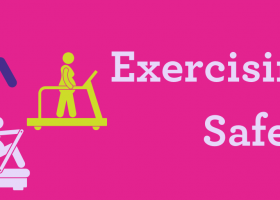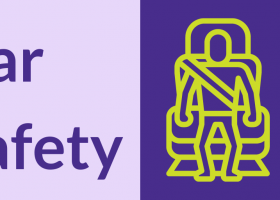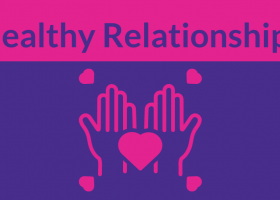Doctor’s Visits

Even if you want to do your body right by keeping doctor visits, we all know they aren’t always fun. There can be long waits, medical tests and screenings, and uncomfortable examinations. There are things you can do to help make the visit even more worth the hassle. Come to your visits on time and prepared to get the most out of it. Even if they are running behind, you can be ready and take charge.
Your primary care doctor is usually the first person you’ll see when you are sick. Over time, your primary care doctor will become familiar with you, your medical history, and your lifestyle. This can be helpful when deciding the best care for you.
Come prepared
When you visit your primary care doctor, you should:
- Take a list of your medications. This list includes any nonprescription drugs, supplements, or herbs.
- Bring test results. Take any reports or results of recent tests or screenings. Especially if another doctor ordered them. Such as blood work, STI screenings, and pap smears.
- Write down your medical conditions. Bring a list of current and past medical conditions.
- Ask questions. Before your visit, write down any questions you may have for your doctor.
- Know your symptoms. If you are sick, make sure you have a list of your symptoms. Include where they are, how long they last, what seems to bring them on, what makes them worse or feel better.
Here’s a sheet from the American Heart Association that you can print, fill out, and bring with you to a doctor’s appointment.
Get Answers
The patient education program, Ask Me 3, has 3 questions for you to ask your doctor:
- What is my main problem?
- What do I need to do?
- Why is it important for me to do this?
When talking with your doctor about a specific illness and treatment, think about asking:
- What is my diagnosis? How can it be treated or prevented?
- What medication should I take? How much and how often?
- Are there any common side effects I should know about?
- Is there anything I should avoid while taking the medicine? Such as certain foods, other medications, or alcohol?
- Does my illness or injury stop me from doing any of my normal daily activities?
- If I am waiting for test results, who should I call? When should I call?
- When should I schedule another appointment to see you?
Your doctor should take the time to answer all your questions and concerns.
When should I see the doctor?
You are young, pretty healthy, and have a family to take care of. So why go to the doctor? Having regular health exams and tests lets your doctor find problems before they become bigger problems for you. The bigger the problem gets, the more time, expense, and risk there is for you. So why not take care of the small stuff so you can keep getting on with your plans?
Seeing your doctor every year gives you a better chance at living a healthy life. Need a way to remember to go to your yearly visit? Go on or around your birthday and you won’t forget each year.
For adults: Unless you’ve just given birth or are pregnant, you should see your doctor at least once year. If you just had a baby, see your doctor 4-6 weeks after the birth for your postpartum visit. This visit is important to check how your body is recovering.
For children: After their first year, children should see a doctor at the following times:
- 15 months, 18 months, and once each year after that.
- Some children may need to be seen more often, follow your doctor’s recommendations.
- In addition to these visits, call and visit your doctor any time your baby or child seems sick.
When should I call my child’s doctor?
Sometimes all your child needs to feel better is a little rest, fluids, and time. But, there are other times when you should call your doctor or 911 right away. If you aren’t sure, always call the doctor just to be safe. Below are some guidelines for when to call:
- Unresponsive. Call 911 if your child is unresponsive or semiconscious, or has trouble focusing her eyes.
- Poison. Call 911 if your child ate or drank something harmful or poisonous, or you are not sure what your child swallowed. Do not make your child throw up. Call 911 first.
- Change in weight. Call your doctor if your child suddenly loses a lot of weight or changes his eating habits.
- Skin infection. Call your doctor if you see signs of a skin infection or a rash that will not go away.
- Bad pain. Call your doctor if your child complains of bad pain in an area of her body. If it seems like something is broken, call 911.
- Hit their head. Go to a doctor if your child falls or bumps her head hard enough to lose consciousness. She may have a concussion if she seems confused or sleepy after a fall.
- Bleeding. Go to a doctor or call 911 for cuts if you can’t stop the bleeding. Or if the cut is deep enough to need stitches.
- Throwing up. Call the doctor if your child is throwing up a lot or has diarrhea that won’t stop.
Virtual Visits
During the COVID-19 pandemic, you may end up talking to your doctor through a computer or tablet screen rather than in person. Here are some tips to ensure you still get the most out of your virtual care visit:
- Make sure you have the right technical equipment
- Sit in a well-lit place, with little sounds distractions if possible
- Use headphones if possible to maximize the sound quality
- Check with your insurance provider or Medicaid office to make sure that your virtual visit is being covered
- Prepare just as you would for any other doctor’s visit, writing down your symptoms, questions, and any other information you want to share with your healthcare provider
What vaccines does my family need?
Vaccines, or shots, are important for both adults and children. They can protect you and your family from harmful infections.
For kids: The following website has a schedule of what vaccines your child should get at each age: Vaccine Schedule
For adults: The following website provides a schedule for what vaccines you should be getting: Vaccine Schedule.
- If you have an infant, it is very important that you get a Tdap (whooping cough) and flu vaccine. Passing these infections to your baby can be deadly.
- This chart provides information about what screening tests you should be getting at different ages in your life: Screening Tests for Women. These include STI screenings, bone mineral density tests, different cancer screenings, and cholesterol and blood pressure tests.
Tips for dad:
Make sure that you get the vaccines that you need. Any adult that is going to be around infants should get their Tdap (whooping cough) vaccine and if you are around children under 5, you should get your flu vaccine. Support your partner in making her appointments and offer to help out in taking the kids to theirs.
Whether you’re about to become a new mom or are adding to your growing family, motherhood begins even before your baby is born. Visiting the doctor for prenatal care is a way for you and your doctor to see how your baby is doing. Monthly prenatal checkups are one of the best ways to care for your baby’s health. Being a great mom can start early!
Why are doctors’ visits important?
Regular doctor visits may be a change for you. They may even seem like a waste of time or money. But they are very important for your baby’s future. Be sure to make and keep all of your prenatal appointments, even if you are feeling good. These doctors are there to help catch any possible problems before they become a serious threat. Even though the baby’s not born yet, you are now in charge of you and your baby’s health.
There are 4 types of professionals that provide prenatal care. These are the doctors to go to when you have questions or concerns during your pregnancy. Choose a doctor that is right for you.
- Family Physicians: A doctor that takes care of the whole family, including during pregnancy, labor and delivery, and your baby after they are born. If you already have a doctor that you know and trust, ask them if they can be your delivery doctor. If they cannot be your delivery doctor, ask them to refer you to someone.
- Obstetrician-Gynecologists (OB-GYN): These doctors only work on women’s health. They see you through pregnancy, labor, and delivery. You need an OB-GYN if you have:
- Diabetes
- High blood pressure or hypertension
- Heart disease
- A history of problems with your past pregnancies
- Other health problems that need to be addressed
- Certified-Nurse Midwives: These are professionals who are nurses and midwives. Their care is specific to pregnancy, prenatal care, and delivery. They will take you on as a patient if you do not have any major health concerns or problems with past pregnancies.
- Nurse Practitioner: This professional is trained to offer you prenatal care, but they are not able to deliver babies.
Which provider is right for me?
What to look for in a good provider:
- Someone who respects you, your time, and your needs
- Someone who makes you feel comfortable
- Someone you feel comfortable asking any question to, and they answer it
- Someone who doesn’t make you feel rushed
- Someone who doesn’t make you wait for a long period of time
Where to look:
- Ask around. Word of mouth is a great start. Ask your friends and family where they went for prenatal care.
- Search the listings. Check the phonebook under health care clinics or hospitals. Search the Internet for local providers. Call and ask about getting a referral to prenatal care.
- Other pregnant women. If you see other pregnant women in your neighborhood, or when you’re out, ask her where she goes for her prenatal care and how she feels about the clinic.
- Your neighborhood. Check if there is any place around your neighborhood. This will make it a lot easier to go to appointments during your pregnancy.
- Your CNN. Talk to your Community and Neighborhood Navigator (CNN). They can help you find a clinic and doctor that is right for you. Call us at 313-874-2187.
You’ve already given birth to your beautiful baby, but your doctor wants to see you 4-6 weeks after your delivery. Even if you are tired and feeling okay, this appointment is really important. Your doctor will:
- Check how your body is recovering from your pregnancy and delivery.
- See how you’re doing emotionally.
- Guide you on your next steps after your delivery and talk about your needs going forward.
If you’ve thought of any questions over the past few weeks, be sure to write them down to bring with you when you see your doctor. You should also bring your family medical tree if you haven’t already shared this information with your doctor.
Here is a list of topics from BabyCenter that your doctor will discuss with you at this visit:
- How you are doing physically. Don’t be afraid to bring up something that your doctor hasn’t asked about. Your doctor will offer ways to help you. The doctor will ask about symptoms like:
- If you’re still bleeding
- Stomach pain
- Vaginal or perineal (the area between your vagina and anus) pain.
- Urinary or anal incontinence (trouble controlling gas or bowel movements or leaking urine).
- Breast pain.
- Any problems during pregnancy and delivery. Your doctor will talk about what effect, if any, these issues will have on future pregnancies and your overall health.
- How you’re feeling emotionally. Sure, the lack of sleep might be getting to you. It gets to everyone. You and your doctor can talk about any emotional issues you are concerned about. Don’t be shy or embarrassed. Tell your doctor if you’re feeling overwhelmed, anxious, or depressed. It may be a sign of postpartum depression. Your doctor can help you.
- Your birth control options. Your doctor will fill you in about the methods you’re considering. You may not be thinking yet about what comes next, but it’s good to have a plan in place so there are no surprises. Your body needs some time to recover from this baby! Check out our article on birth control for more information.
- If you’re planning to use a diaphragm, let your doctor know before she examines you. She can fit you for one during this visit.
- Are you breastfeeding? Your doctor may ask how it’s going and if you have any questions or concerns.
- Your lifestyle. Your doctor will talk about the foods you eat and healthy weight loss.
- Can you start having sex again? The answer is usually yes, but don’t worry if you don’t feel up to it yet. Many women don’t feel like having sex for several months after giving birth. Wait until you feel ready.
Want a tip sheet on how to take care of yourself 6-weeks after you give birth? Download this Healthcare Guide for New Mothers from the Association of Reproductive Health Professionals.
Tips for Dad:
Offer to go with Mom to her 6-week postpartum visit. At this point she may still need some time to heal. You can help her by offering her gentle reminders from her doctor’s visits.
Local Resources:
- CHASS Center offers family health care at their locations in Southwest and Midtown
- Advantage Health Centers offers family health care to patients regardless of insurance status and homelessness, they have health and dental locations for children in Midtown and Osborn
- Mercy Primary Care Center on Detroit’s Eastside will accept patients without insurance they also offer a pharmacy, mental health clinic, health education, and transportation
- Cass Clinic offers The Saturday Free Medical Clinic, all services are open to the community; prescriptions, testing, and other procedures are free.
- Detroit Community Health Connection offers medical services in the Brightmoor area for the entire family through various locations throughout the city
- Juanita Reaves Free Clinic offers healthcare for adults and children, as well as health education to managing chronic illnesses




